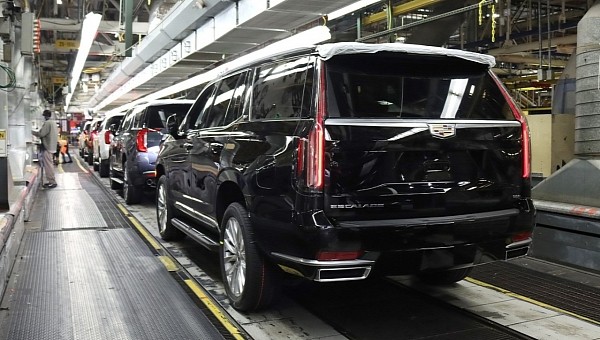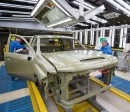The chip shortage isn’t going anywhere, that’s pretty clear already, and despite the declining demand for certain electronics, such as PCs and tablets, some industry sectors continue to struggle with a very constrained inventory.
The automotive market, for example, is still impacted heavily by the lack of semiconductors, despite the original expectations pointing to a substantial recovery in late 2022.
While everybody now agrees that the chip crisis will continue, nobody can tell for sure just for how long.
The CEO of German auto supplier Bosch believes that the lack of chips will remain a problem in the automotive industry until the second half of 2023. In other words, some signs of recovery should become more noticeable in approximately one year.
But Stefan Hartung thinks that the one which could help resolve the chip shortage is none other than rising inflation.
In the last few months, the inflation levels have reached record levels, especially in Europe, with prices of pretty much everything going through the roof. However, Hartung says the skyrocketing inflation would eventually impact the demand, which in its turn will help tackle the shortage.
Obviously, this isn’t exactly the most convenient way to deal with the chip shortage. Dropping demand means lower sales, and lower sales would obviously lead to other problems for carmakers out there, despite having enough chips to install on their cars.
But at the end of the day, the consensus right now in the automotive industry is that the chip shortage would continue for at least one more year. Ford and General Motors seem to think the same, though the most pessimistic executives out there warn that the constrained supply might remain a problem even beyond this date.
Intel has previously estimated a return to pre-2020 chip levels in 2024, especially as the investments in production capacity start paying off for foundries across the world.
While everybody now agrees that the chip crisis will continue, nobody can tell for sure just for how long.
The CEO of German auto supplier Bosch believes that the lack of chips will remain a problem in the automotive industry until the second half of 2023. In other words, some signs of recovery should become more noticeable in approximately one year.
But Stefan Hartung thinks that the one which could help resolve the chip shortage is none other than rising inflation.
In the last few months, the inflation levels have reached record levels, especially in Europe, with prices of pretty much everything going through the roof. However, Hartung says the skyrocketing inflation would eventually impact the demand, which in its turn will help tackle the shortage.
Obviously, this isn’t exactly the most convenient way to deal with the chip shortage. Dropping demand means lower sales, and lower sales would obviously lead to other problems for carmakers out there, despite having enough chips to install on their cars.
But at the end of the day, the consensus right now in the automotive industry is that the chip shortage would continue for at least one more year. Ford and General Motors seem to think the same, though the most pessimistic executives out there warn that the constrained supply might remain a problem even beyond this date.
Intel has previously estimated a return to pre-2020 chip levels in 2024, especially as the investments in production capacity start paying off for foundries across the world.






